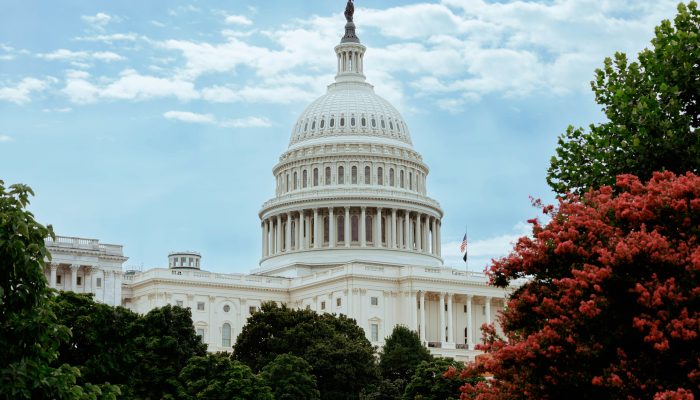As the federal government carries out aggressive immigration raids in major cities across the U.S., state officials are facing off with the federal government over a centuries-old question: When can states prosecute federal officials for violating state criminal law?
A statement from former speaker Nancy Pelosi and California Rep. Kevin Mullin on Oct. 23 asserted that “state and local authorities may arrest federal agents if they break California law—and if they are convicted, the President cannot pardon them.” Illinois Gov. JB Pritzker has formed a commission to address “unlawful attacks” by Immigration and Customs Enforcement (ICE) officers. New York’s attorney general recently set up a portal for the public to share footage of ICE interactions, stating that the office is “committed to reviewing these reports and assessing any violations of law.” And local officials in San Francisco, Philadelphia, and Boston have stated that they will pursue legal action if federal officers break the law.
In response, several federal officials are threatening their own prosecutions of state and local officials and are asserting that ICE agents and other federal actors are immune from state prosecutions. In a letter to California officials, U.S. Deputy Attorney General Todd Blanche asserted that the U.S. Constitution’s Supremacy Clause “precludes a federal officer from being held on a state criminal charge where the alleged crime arose during the performance of his federal duties.” Meanwhile, Deputy Chief of Staff for Policy Stephen Miller told ICE officers in a TV interview that “you have federal immunity in the conduct of your duties” and that “anybody who lays a hand on you or tries to stop you or tries to obstruct you is committing a felony.” According to Blanche, Miller, and Attorney General Pam Bondi, state and local officials who seek to arrest federal agents could be charged with federal crimes like obstruction, “harboring aliens,” “conspiring to impede federal officers,” or “seditious conspiracy.”
Are these federal officials accurately stating the law?
In short, no. On the immunity question, federal officers are shielded from state criminal prosecution in some circumstances, but they do not have blanket immunity and never have. In fact, states have a long history of prosecuting federal actors for state crimes, stretching back to at least the early 1800s. Many of these cases arose amid high-tension flashpoints between the federal government and states, including in disputes over slavery, desegregation, and prohibition.
This state prosecutorial power does come with important constitutional limits. In cases where federal officials are acting reasonably and within the bounds of their federal duties, federal courts have held that state prosecutions cannot go ahead. The reason stems from the Constitution’s Supremacy Clause: If states were free to prosecute federal officials for lawfully and reasonably carrying out their duties, states could thwart the entire operations of the federal government. Importantly, however, the Supremacy Clause does not categorically immunize officials for actions carried out during the performance of federal duties, as Blanche and Miller have asserted. Rather, courts conduct a situation-specific inquiry into both the scope of the federal officer’s authorized duties and whether the officer’s actions were reasonable (or “necessary and proper”) in carrying out a federal duty.
Disputes over immunity traditionally play out within the federal officer’s criminal case—not in a tit-for-tat arrest of state officials who seek to prosecute federal actors, as Blanche, Bondi, and Miller are now threatening. Federal courts have long recognized an important role for state prosecutions in checking federal abuses of power. Subjecting the officials who bring those prosecutions to parallel criminal actions would raise significant federalism issues and mark a sharp departure from past practice.
You can read the full article at Lawfare.

